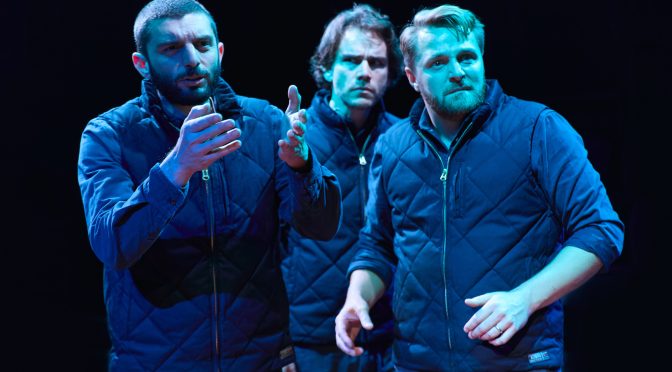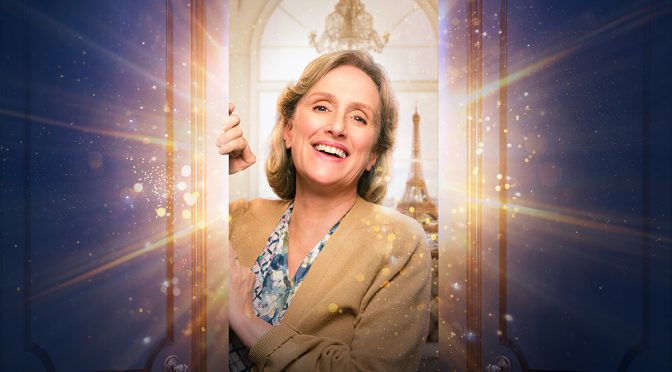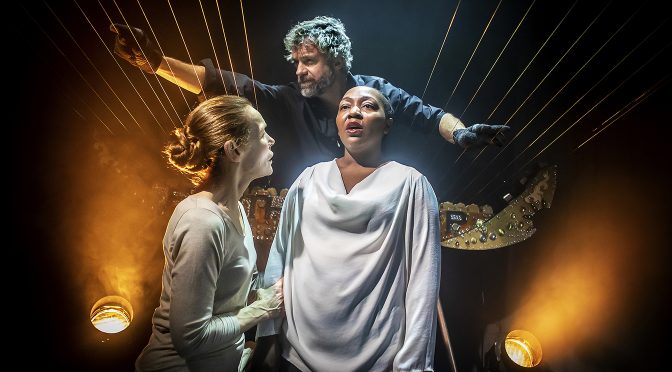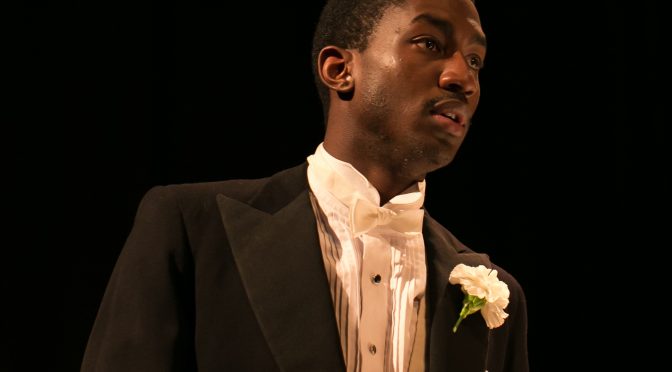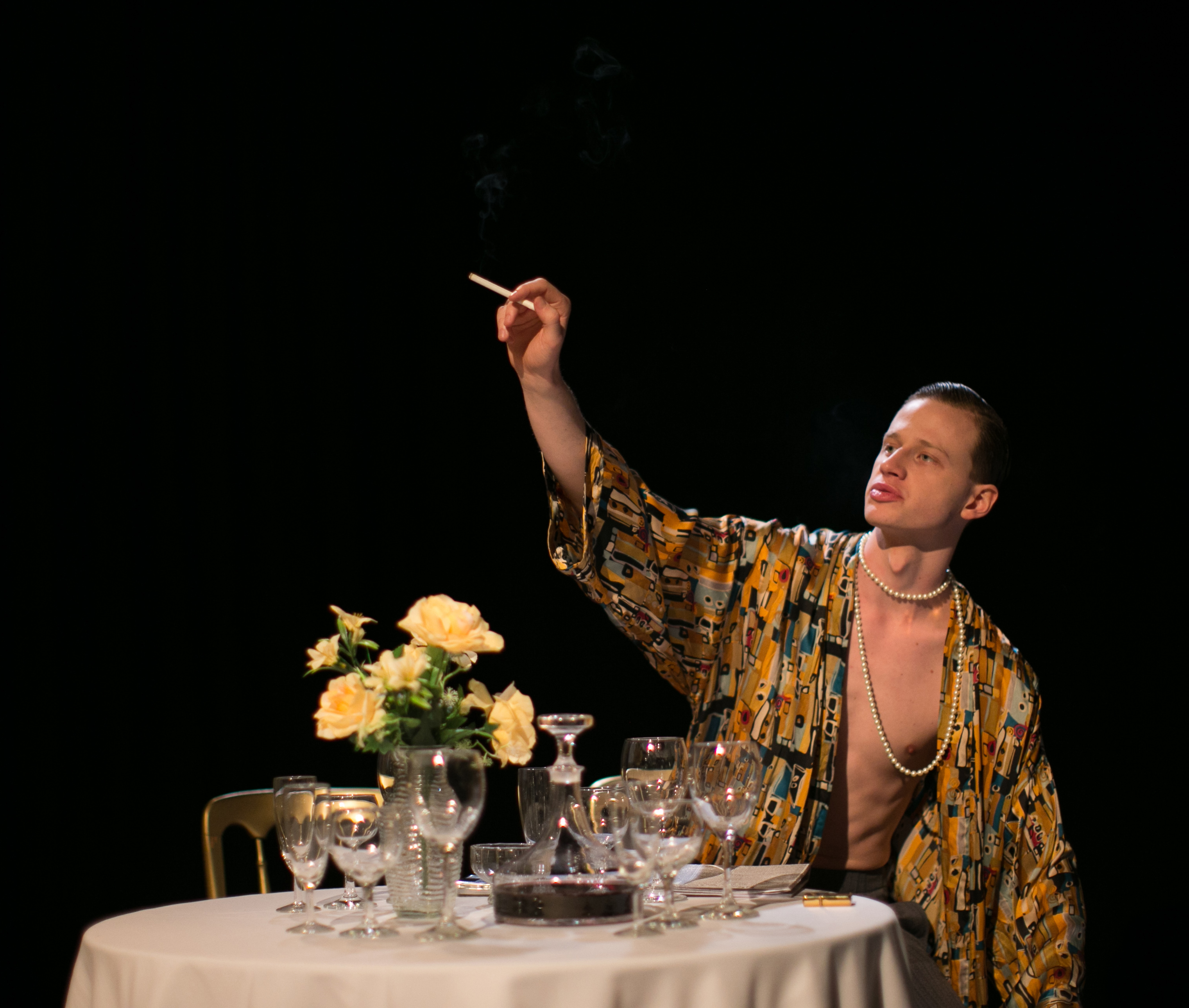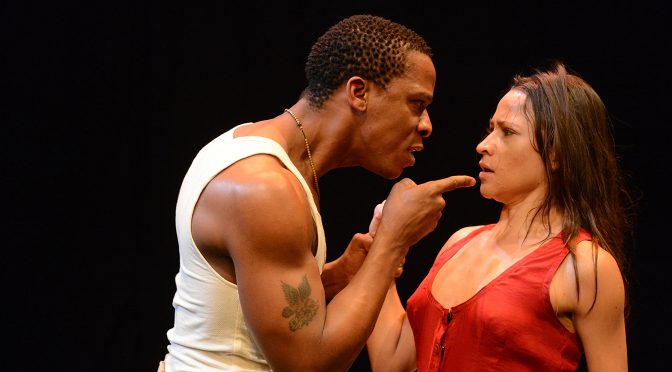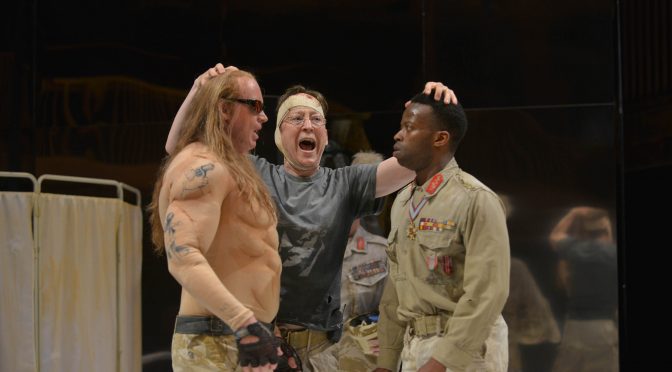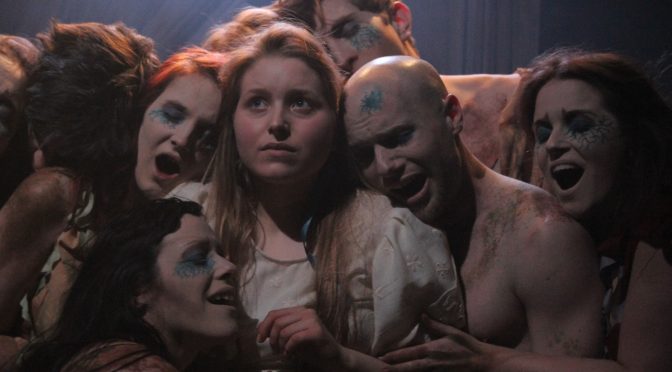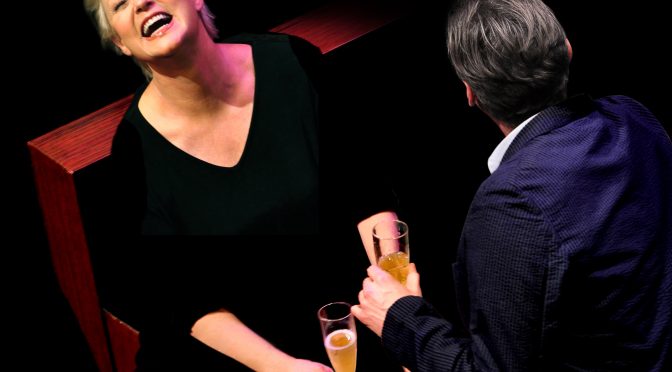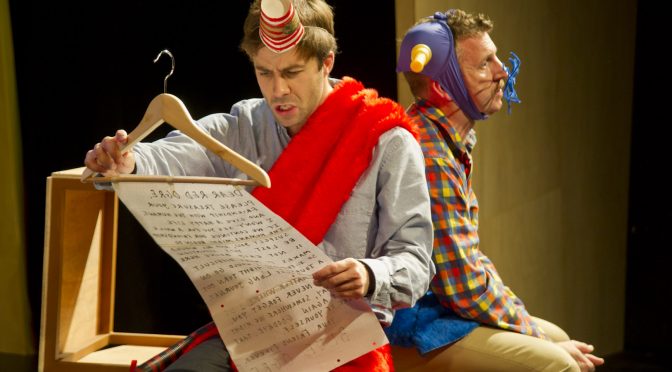It’s easy to read Shakespeare’s tragedy as a play about its villain, Iago, as much as the title character. But this new version from director Sinéad Rushe has three performers against one! Michael C. Fox, Orlando James and Jeremy Neumark Jones all play Iago and embrace the project as a team. The idea is interesting and the result exciting.
The trio aren’t taking turns as Iago, they appear on stage, mostly, at the same time. They alternate the lines, or speak in unison. The results fascinate. It’s especially effective for soliloquies, suggesting an internal dialogue. And it aids Iago’s often feeble arguments as the three gang up on victims. The idea also works well for crowded fight scenes or when Cassio is drunk. Iago, the “demi-devil”, becomes supernatural as he can be in so many places at the same time.
“Dull not device by coldness and delay”
The production even takes advice from Iago! The abridgement prevents distraction from the concept. And a good deal of passionate torment is clear from all characters. Rushe has a firm hand and bold approach that makes action clear and focused. There is an imbalance – how could there not be – and, of course, it helps to know the play well. But the focus is intentional, the idea proves fruitful and the execution is strong.
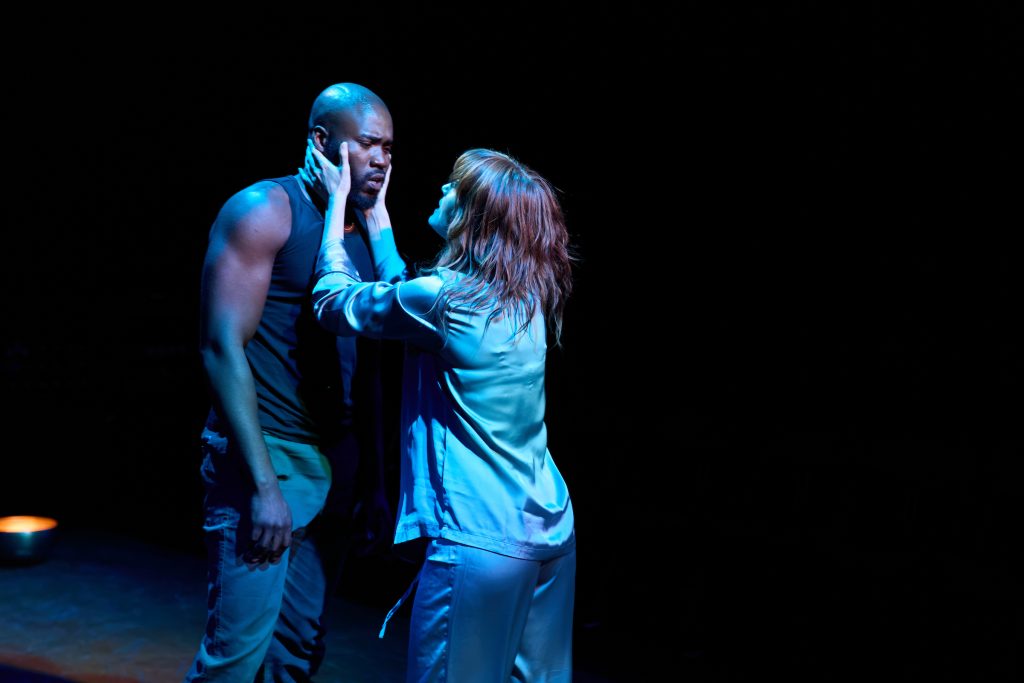
It should be stressed, the production has an excellent Othello: Martins Imhangbe is dignified and moving. Imhangbe brings admirable restraint to the role and is a powerful stage presence. His Desdemona – Rose Riley – is great too, passionate and making every line fresh. Fine performances from Rachel-Leah Hosker and Ryan O’Doherty, taking four roles between them with apparent ease, also deserve mention.
Surprisingly, the eye-catching triple casting of Iago isn’t the only highlight of the show. Just as impressive is how this Othello sounds. Not only is the delivery of the lines accomplished, the sound design from Ali Taie is super. A variety of effects startle, intrigue, and aid the audience. We even get to see how some are achieved: there’s a great sea crossing scene and each Iago makes a show of using their microphones. To top it all, original music from Fox, including a gorgeous Willow Song beautifully sung by Riley, is excellent, once again providing pace and emotion. There isn’t a dull moment with the device in this production.
Until 29 October 2023
Photos by Mark Douet

